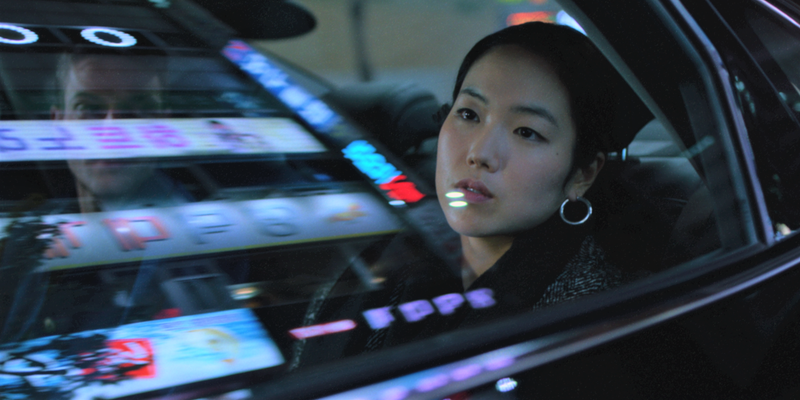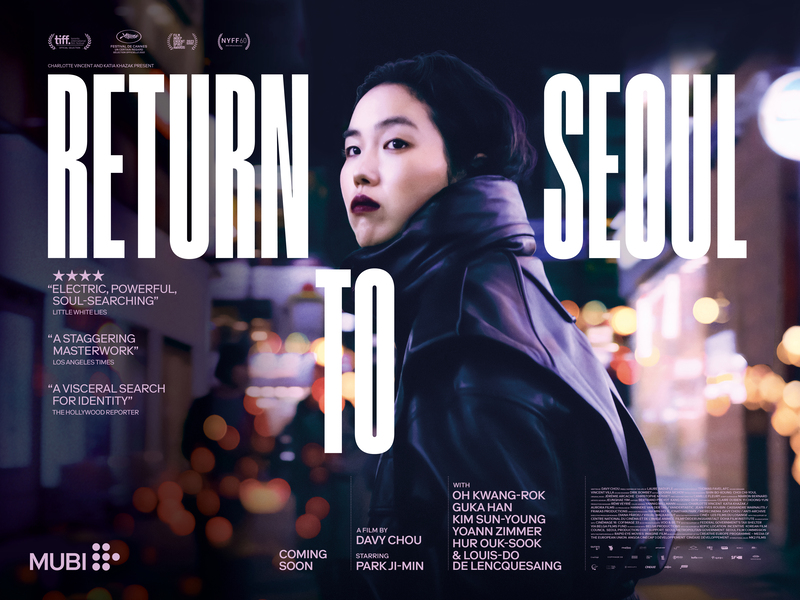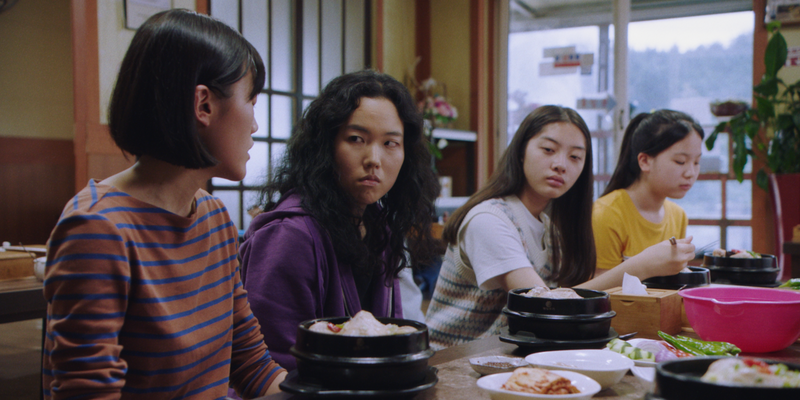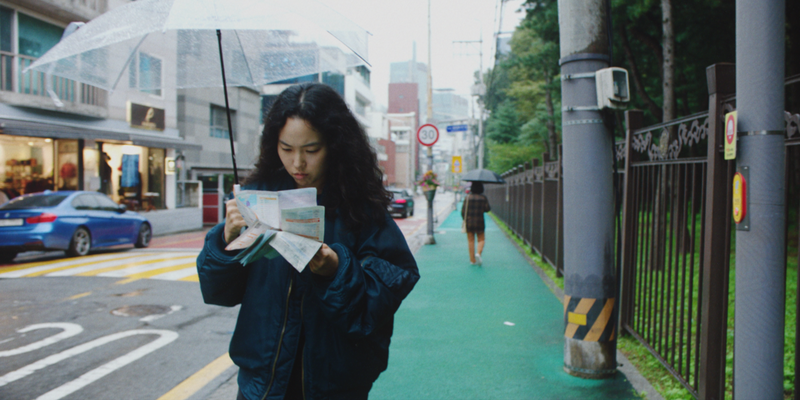
Review by
Eric Hillis
Directed by: Davy Chou
Starring: Ji-Min Park, Oh Kwang-rok, Guka Han, Kim Sun-young, Yoann Zimmer, Hur Ouk-Sook, Louis-Do de Lencquesaing

Writer/director Davy Chou's Return to Seoul opens
with a telling encounter between two young Korean women. They both look
Korean, but that's all they have in common. Guest house desk clerk Tena
(Guka Han) is timid and withdrawn, embarrassed to have been
caught listening to music in her headphones by one of her guests,
Freddie (Ji-Min Park). Freddie is far from timid and withdrawn,
and asks to listen to Tena's music, a move that at once embarrasses Tena
further while also endearing her to this disarmingly confident stranger.
While both women are Korean, it's Freddie's first time in the country
since being adopted by a French couple as an infant. She's French, as
she'll insist several times over the course of the movie, but she's also
Korean. Trouble is, she doesn't know what it means to be Korean, or if
she even wants to be Korean.

Freddie's reasons for visiting Seoul are left ambiguous. On a Skype
call she tells her adoptive mother that her planned flight to Tokyo was
cancelled due to a storm and that she instinctively switched to Seoul
instead. Her mother's worried tone suggests this wasn't a whim on
Freddie's part. When Freddie learns how relatively easy it is to be put
in contact with her biological parents through an adoption agency, she
decides to make contact, again on what feels like whim. It's a decision
that instantly impacts Freddie in ways she isn't emotionally capable of
dealing with.
While her biological mother ignores the request from the agency, her
father (Oh Kwang-rok) immediately responds. Aided by Tena as an
interpreter, Freddie heads to the countryside to meet her father. There
she finds a sorrowful man who has been carrying the weight of his
actions all those years ago and has turned to the bottle. His new wife
confides in Freddie how her husband cries every night thinking about the
daughter he gave up. Freddie suddenly realises the weight of her actions
when her father begins speaking of having her move to Korea and find a
Korean husband. She leaves that evening and immediately begins cruelly
joking about how pathetic she finds her father. In what comes off as a
particularly cruel action, Freddie discards a pair of ballet shoes her
father bought for her in a forest. The image of those discarded shoes is
as laden with hurt as that Hemingway attributed six-word story, "For
sale: baby shoes, never worn."

Return to Seoul is about the messiness of life, and how
messy people can cause untold damage to themselves and others. Over the
course of the film we watch as Freddie surprisingly remains in Korea and
heads down a path of self-destruction. A jump two years ahead from
Freddie's arrival sees her clad in a long black leather coat, slicked
back hair and dark purple lipstick, as though she were a replicant in
some third Blade Runner movie, an image compounded by the
neon background of a bustling, rain-soaked Seoul. We learn that her
father has continued to send her messages, though they've become less
frequent as time goes on. It's unclear why Freddie chose to remain in
Korea, given how much contempt she displayed towards the country and its
people in the movie's first act. Then we remember she never received a
reply from her mother. If her mother ever replies, will she treat her
with the same cruelty she inflicted on her father?
The most interesting movie protagonists are often the most difficult to
crack. It's impossible to pin down what Freddie is really thinking or
feeling at any given time, and it often seems as if her words and
actions, which are at times downright villainous, are a front. Freddie
seems to strike out at others any time it seems she might be in danger
of getting hurt herself. "I could snap my fingers and make you disappear
from my life," she coldly tells a bemused French boyfriend. She enjoys
making her conservative Korean hosts uncomfortable with her liberal
Western European ways, and revels in dismissing their customs in a
manner that's simply rude.

Freddie is difficult to like and even more difficult to understand, but
she's never not charismatic, and we don't give up on her because we
always sense that every time she hurts someone, she hurts herself a
little more. In her first ever role, Park is a sensation, the sort of
presence that glues your eyes to the screen, the kind of woman you can't
look away from. Trouble, in other words. She has that classic Gallic
pout that all the great French female stars possess, and it makes
Freddie seem like a visiting alien among the reserved Koreans she embeds
herself with. Some will find Freddie too loathsome to empathise with,
and maybe they have a point. Others will see past the Parisian pout and
European arrogance to a woman deeply troubled, eternally lost, and as
Tena puts it, "very sad." An ambiguous, almost Antonioni-esque ending
will either be seen as Freddie receiving her just desserts or finally
understanding where she came from. By that point she's burnt every
bridge that might allow her to return home.


